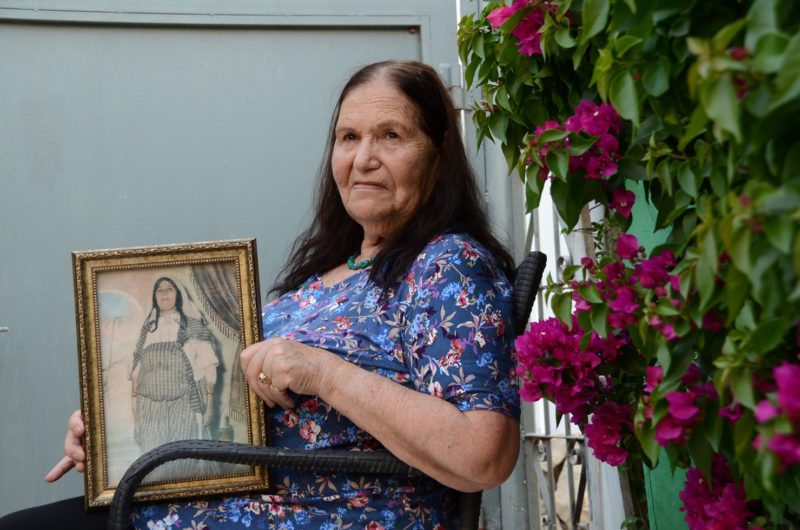
Shoshana Yekutel
“I was born in 1939, in the Tunisian city of Gabes. Africa doesn’t usually come to mind with regard to the holocaust, but the Nazis reached us too. There was a guy in our neighborhood – Messiah, they called him – considered a bit off his head, and he begged people to escape the country before the Nazis completely took over. He talked about extermination camps, gas chambers and the incessant crematoriums in Europe. He claimed the Nazis were systematically eradicating the European Jewry, and whoever stayed in Tunisia was doomed to the same fate.
Since he was a little nuts, nobody wanted to believe him. His stories sounded so insane that no-one would take them seriously. But the moment the Nazis rose to full power people understood it was not Messiah that was crazy but the Nazis themselves – they, who wanted to exterminate each and every Jewish person in the world.
The Nazis made the Jews wear yellow badges, especially in the big cities, and launched the usual process of dehumanization, just as they had done in Europe. They began to build the infrastructure for the extermination of the Tunisian Jewry. All Jewish males were forced to work in labor camps set up for this purpose. My father was taken away to work at one of these camps, and he never overcame the humiliating experience and the damage to his health. He died of pneumonia shortly after the war.
We suffered hunger, thirst, disease and lice infestation. My mother talks about the terrible feeling of helplessness, of losing all control over our lives. Terror dominated the streets and you could never know who was going to be the next victim. The List of victims from our community grew longer every day. Luckily for the Tunisian Jewry, Messiah’s prophecies were not fully realized – the Germans simply didn’t have enough time to finalize their plans. In May 1943, six months after their take over, the British managed to drive them out and save us from the Nazi extermination machine.
I feel I am part of the holocaust, but it seems as though other people don’t always acknowledge that. The fact our hardships are hardly mentioned in the Holocaust Remembrance Day events upsets me. We were not burned to ashes in Europe’s crematoriums, that is true, and still we were put through great suffering just for being Jews. One has to remember that if it were not for the British, we would have gone up in smoke. I think it is about time we were historically recognized as part of the Holocaust.”
